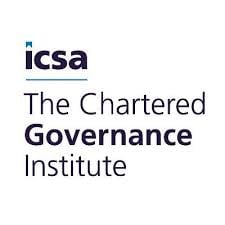Landing a training contract is not the only route into the legal sector. Company secretarial and governance roles give you the opportunity to use your legal knowledge and experience to get your foot into the boardroom. Being a Chartered governance professional immerses you in a broad career that provides exposure not only to law but business strategy, finance and support to the board of directors. The Chartered Governance Institute can help you gain experience if this is a career for you.
Good governance is vital to enabling the management of a board to effectively deal with the challenges of running an organisation and ensure that they operate legally, appropriately, ethically and fairly. Chartered governance professionals support, influence and advise the board regarding legal, regulatory and ethical matters to ensure that organisations keep all stakeholders in balance and execute well-informed decisions.
At the organisation’s core
Governance professionals possess highly strategic roles and hold positions of considerable influence. They work closely with the chair, CEO and directors to keep organisations true to their strategic purpose and ensure they operate successfully within regulation.
Transferable between sectors
As a law graduate, your degree opens the doors to a much wider career than conventional law. There is flexibility to move between public, corporate or not-for-profit sectors nationally and internationally. The role of a governance professional will differ from organisation to organisation, and no day will ever be the same. Governance professionals are in demand in across all sizes of organisations, and across a variety of sectors including charities and academy schools, as well as the National Health Service and sports organisations.
Interpersonal skills
Governance professionals need to keep-up-to date with regulatory changes, current issues and be wary of future developments.
In addition to technical knowledge, soft skills are essential to an organisation’s success and are just as crucial to business success as the more recognised ‘hard skills’.
A good governance professional should be able to effectively negotiate, communicate and form relationships. They need to have a non-partisan approach, informed decision making, ability to influence others, facilitation skills and at the same time be self-aware, independent, resilient and discreet, all while keeping a calm persona.
Do you want to know more?
Book a place at our Graduate Open Evening in London on 3 June 2020 and hear from governance professionals about what drew them into the role, how they qualified and their first-hand advice.
Alternatively, visit the Graduate Hub and register for an insight day, work shadowing opportunities, or sit in on an AGM session to gain rare insights into the plans and strategies of high-profile organisations within the UK.

